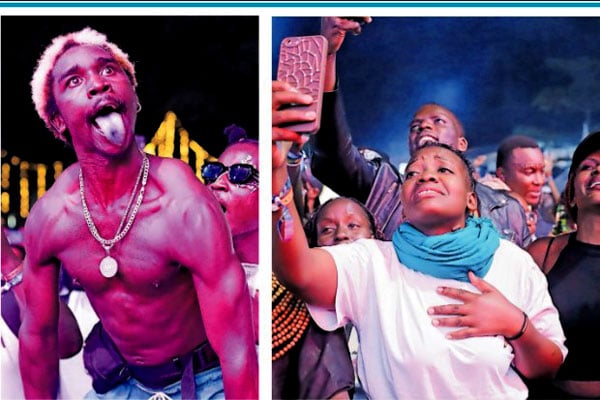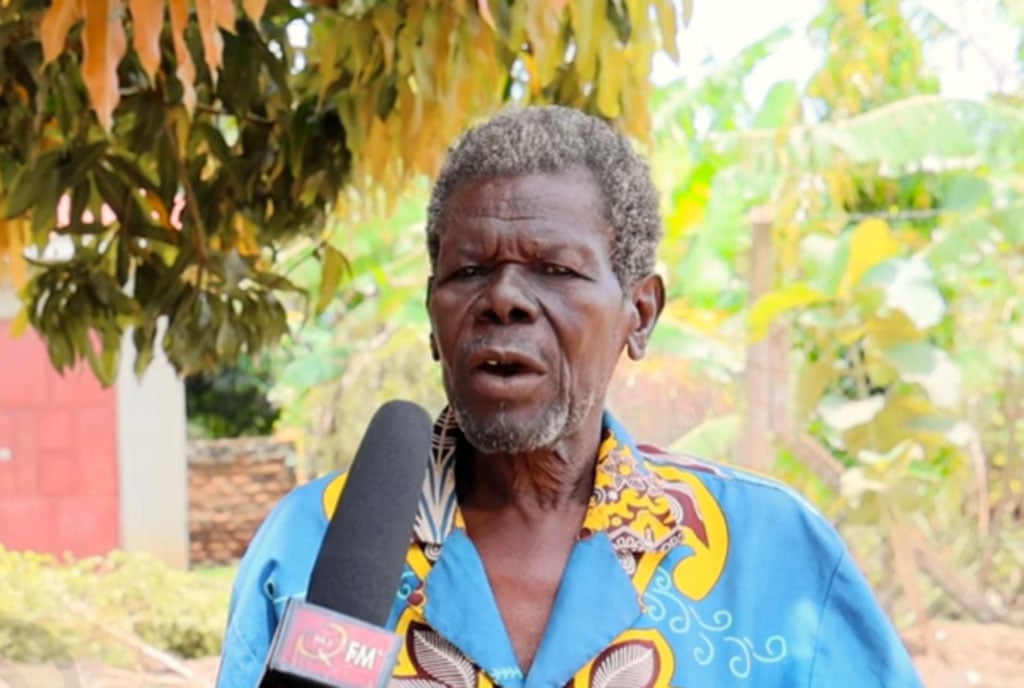Prime
Retelling the story of Mwanga II, Buganda’s last independent king

The double-storeyed house owned by Mwanga II, the Kabaka of Buganda who fought diplomatic, political and military battles to preserve his kingdom from colonialists. He died a prisoner far away from his country in Seychelles.
What you need to know:
The review of Mwanga II: Resistance to Imposition of British Colonial Rule in Buganda, 1884-1889, a book by Professor Samwiri Lwanga Lunyiigo, says the actual story of Mwanga is one of a man’s struggle to manage the complex political and diplomatic legacy of his day.
Does history have an owner? And if so, should that matter to how the history is then told?
In retelling the story of a 19th Century monarch in the heart of Africa, this book demands that the question be reflected upon. What happens when the people about whom this history is recorded are not the custodians of that process?
Nowhere is this problem presented as clearly as when it revolves around the personality of Mwanga Bassamula, 33rd Kabaka of Buganda. A man who lived in tumultuous times, but did not shrink from them, and whose great political complexity has been reduced to one of a two-dimensional despot that fits so well into the European imagination.
Noam Chomsky described historian Howard Zinn as having created a whole new writing genre with the book A People’s History of the United States. With his book on the life and turbulent times of “Buganda’s last independent King” Mwanga Basammula, Prof. Lunyiigo seems intent on bringing something of this approach to African letters.
By focusing on one man, he does not write a “peoples’ history” as such, but does invoke the spirit of that approach in the sense of seeking to reclaim the right to a particular narrative from both the Western colonialism, and the native neo-colonial intellectual citadels where it had been imprisoned for over a century.
With “blood thirsty tyrant; insane youth; lunatic potentate…” being samples of the missionary invective against him, Mwanga was the original victim of Western moral maligning, whereby a leader is primed for regime change through systematic vilification in missionary, media and academic spaces, justifying a western-sponsored “liberating” of the people he governs.
Protecting his legacy
This seems to be the ailment Prof Lunyiigo seeks to cure, by unearthing a clearer picture of the man and his times, discerning the motives behind his most infamous actions, and reflecting on his political legacy.
This is no small task for an African-born student of African history to undertake. It is easier to maintain this historical slander due to the deeply embedded -almost instinctive- understanding among respectable (read Western) academia that believes Africa has at best, only an unreliable history to report, and that Africans themselves cannot be relied upon to tell it.
In Black Athena, historian Martin Bernal traces this mindset all the way back to the need for the European intellectual movements to contribute the necessary academic ballast promoting the idea of an inherent European superiority over other peoples so as to justify their growing empires.
This led to the invention of the idea of a European Civilisation that sprung independently from its own roots, in Ancient Greece and as an idea was developed to its highest academic formalisation from the 1830s.
In the process, the inconvenient fact -backed by much evidence from earlier European and Greek intellectuals themselves- that Ancient Greece’s civilisation was seeded by, and drank heavily from the fountains of, the much older, black African Egyptian one had to therefore be obscured. These are the roots of anti-African racism, and of politically-driven western academia.
In the more contemporary form, they sought to abolish the idea that there could be coherence in the motives and actions of any native figure from African history. The English Africanist Basil Davidson provides the example of 1920s Oxford Professor of Colonial History H. E. Egerton defending colonialism, which he described as “the introduction of order on to blank, uninteresting, brutal barbarism”, as “the right way… of dealing with the native problem”. It is Orientalism on amphetamines.
Into this toxic environment steps the figure of Mwanga, a man who inherits the throne of Buganda in 1884 upon the death of his father Mutesa of much explorer commentary. Confronted by the political realities behind the presence of the various visitors in his realm, Mwanga embarked on a strategy of reorganising his realm to accommodate the new realities.
With advocates of Islam, Anglicanism and Catholicism -each actually representing rival imperial interests- all seeking a bigger voice in his Court than they had had in his father’s, open warfare eventually broke out. In all, Mwanga was to be driven from his capital three times, and only regain his throne by building alliances between traditionalists, and one or other of the Missionary camps.
Mwanga’s defeat
He was to be finally defeated by a freshly bolstered triumphant Anglican army in 1899, and be imprisoned in the Seychelles where he died, aged 37 in 1903.
The actual story of Mwanga is the story of a man’s struggle to manage the complex political and diplomatic legacy bequeathed him. In the Western, and Western-shaped imagination, he is remembered for the execution of the Englishman Hannington, first Anglican Bishop intended for the region, and the burning at stake of over forty Christian converts.
Interestingly, he was also condemned as a homosexual, as this was an affront to European moral opinion of the time. This prompts the author to speculate on why General Gordon, the British soldier outsmarted by Mwanga’s father, had not been condemned for being of the same persuasion.
In the middle of all this, his character, and therefore the particular nature of his reign emerges as a battleground of interpretations in to which Prof. Lunyiigo happily wades.
Africa remains a hugely historicised continent, and nowhere do past events seem to weigh more on politics than here.
The needs of colonial politics were clear. They needed independent-minded potentates out of the way so as to take control of their resources.
Elite post-colonial politics come with a more complex set of needs. On the one hand, it has no desire to share power with forces carried forward from the period before colonial conquest, but on the other, it has no other reference point from which to draw political legitimacy.
In Uganda, this dilemma has led to a three-way pull on the telling of the Mwanga story, and others like it. Those parts of colonial slander that could be used to continue a discrediting of “return to feudalism” were left to enter the modern history. Those historical facts that suggested a more enlightened pre-colonial disposition are downplayed.
A classic result of this intellectual character split is the spectacle of politicians from the modern elite condemning Mwanga’s Buganda for welcoming the missionaries while at the same time labouring to send their children to the very mission schools that those Christians founded in Buganda.
In short, the real Mwanga story is a rock upon which ships of anti-African narratives, ancient and modern, may founder. His reality, as opposed to his contending myths, confound all attempts to fit Africa into convenient boxes. For this reason, it is now preferable that he not be discussed at all. This is why the professor makes an important contribution to unearthing all this inconvenient truth.
In a book replete with remarkable revelations, the author presents to the reader a radically different personage and his times than the one handed down by convention. The meticulous attention to detail and close referencing, despite many avoidable typographical errors, should force other serious commentators and analysts of Uganda history and politics to rethink their long-held opinions of this much-maligned man and his people.
In the conventional Ugandan historical narrative Buganda is typically assigned the role the collaborator who “let the colonialists in”.
Looking beyong Mwanga
Prof Lunyiigo foregrounds our understanding of the Mwanga period by taking us to the reign of his grandfather Suuna who violently expelled the resident Arab traders in 1844 when they began demanding human beings as well as ivory as payment for their wares. This helps us better understand the European invasion on the pretext of eliminating the slave trade.
He develops this foregrounding with tales of Mutesa whom Speke and Stanley, the first Explorer-Adventurers of the Eastern African interior had encountered, and sought to develop beneficial relations with the European powers through him.
We learn how Mutesa elegantly check-mated General Gordon’s attempted annexation of Buganda to the Anglo-Egyptian interests from Khartoum, by disarming then diplomatically besieging the garrison Gordon had dispatched, obliging their commander to request permission to withdraw from their “gilded cage” back to the Sudan.
Mutesa, who had converted to Islam, also executed over 70 Arab missionaries when they sought to use his new religion to gain moral authority over him. “The Arabs can keep their religion, and you Christians can keep yours. We ourselves shall keep the religion of our forefathers,” he said.
The cultural problem among many proponents of contemporary African nationalism is to conflate xenophobia with patriotism on the one hand, and cosmopolitanism with collaboration on the other, when considering the pre-colonial period.
“We, the Baganda, want peace to prevail and our independence as in the past. We shall welcome all visitors to our country but will not allow anybody to take over the government of my country.”
Summing up the story
He perfectly sums up Buganda’s attitude and perhaps that of much of pre-colonial Africa, towards foreigners, whose sophistication seems a little difficult for ideologues to grasp.
This also challenges the reader to accept an alternative reading of the Christian executions. After “fighting slavery” the next Imperial pretext for invasion was the need to “protect African Christians”. By providing missionary records of initial protection from Mwanga, coupled with evidence of converts working as spies for the invaders the professor brings down another pillar of anti-Mwanga historiography.
How then, can we sum up this book? It allow us a clearer picture of not just Mwanga, but the complexities, nuances and sophistication of 19th Century indigenous African politics, diplomacy and military affairs, especially in the face of great calamity.
It shows us that historians from Africa do not have to see their work as only a commentary on, or addendum to the “true” history as written by a Western academic. African historians should write their own histories of Africa -or anywhere else for that matter- in their own right.
Alexander Mackay, the pre-eminent Presbyterian missionary to Buganda of the time observed that: “In former years the universal aim was to steal the African from Africa. Today, the determination is to steal Africa from the African.”
That was then, but the Africa of today remains a place whose history has been stolen and hidden. The challenge Samwiiri Lunyiigo has put to other historians from Africa is to boldly reclaim it as there are many more figures from our history need to be revisited for their significance and true nature to be understood.




